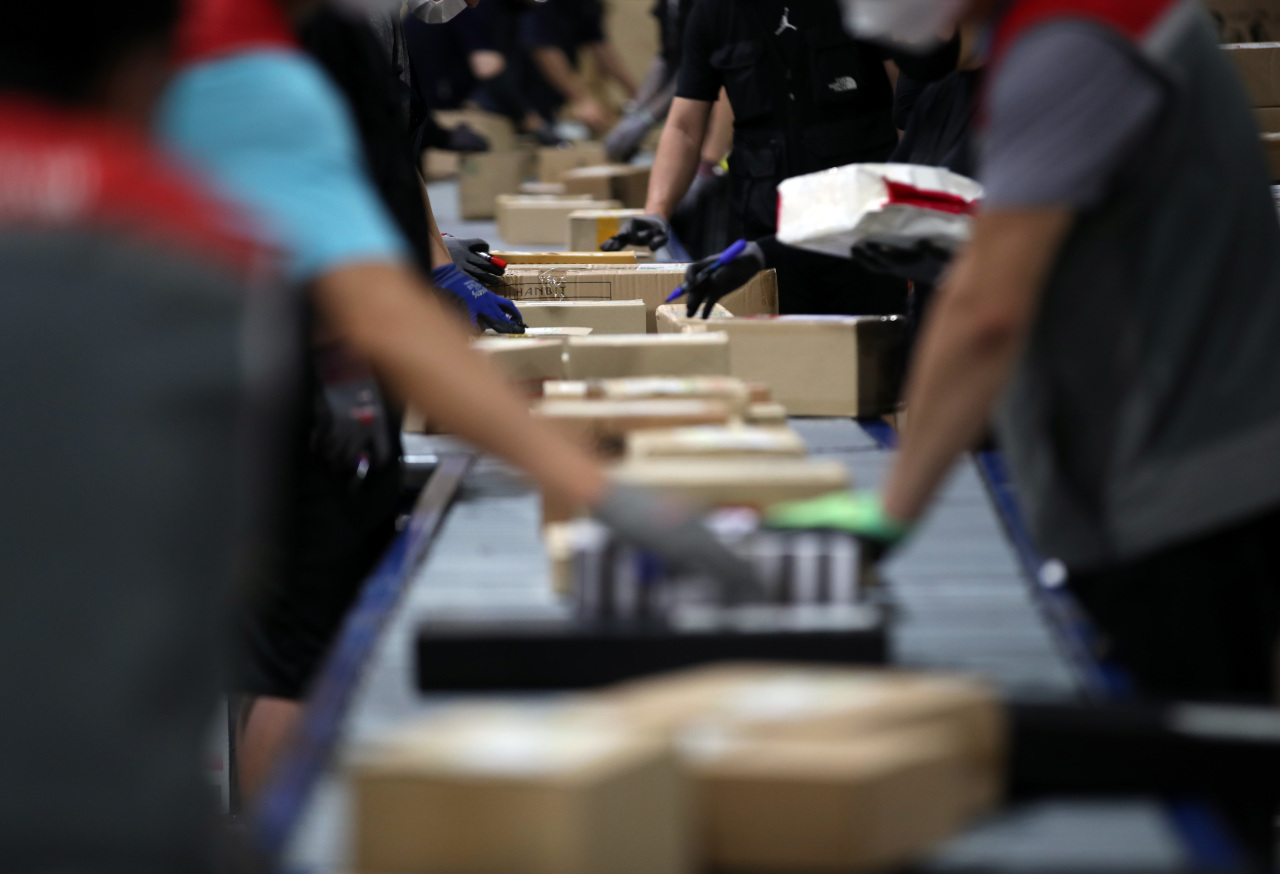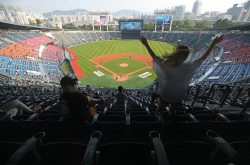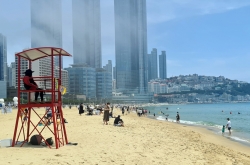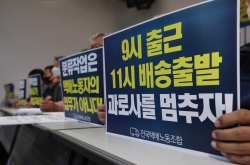Korea’s COVID-19 vaccinations primarily proceed in the order of age and vulnerability, but priority vaccine status is also granted to people in essential jobs.
In the country’s rollout plan for the third quarter unveiled Thursday, the pandemic’s less visible essential workers -- in delivery chains, transportation networks, service sectors -- still facing COVID-19 risks have been sidelined in priority vaccinations.
Instead the plan included “intracompany vaccinations” for workers in select industries. The plan did not explicit state which industries these might be, but among them are the big four conglomerates of Samsung, Hyundai, LG and SK, The Korea Herald has found.
The Korea Disease Control and Prevention Agency’s chief Jeong Eun-kyeong said at Thursday’s briefing that together with labor officials, the agency was choosing “companies capable of carrying out on-site vaccinations” for their employees.
“It has to be companies with affiliated medical institutions or otherwise equipped with the infrastructure necessary to deliver inoculations,” she said. “Since the supply schedule is still uncertain, we don’t know which type of vaccine will be allotted to these companies yet.”
While Jeong said no specific industry or company was being considered at the moment, the agency’s vaccine distribution plan issued on the same day said priority vaccinations would be provided to “industries such as autos and steel that need to operate plants 24 hours a day.”
All of the four conglomerates -- Samsung, Hyundai, LG and SK -- confirmed to The Korea Herald that they recently received a letter from the government regarding vaccinations for their employees. Two of them said the manufacturer of the vaccine they would be getting was Moderna; the other two declined to comment.
Workers in contagion-prone settings are left wondering why they would not be included in the next priority groupings.
“Workers in delivery platforms, food outlets and public transit, for instance, are constantly exposed to risks of infection on a day-to-day basis,” said a member of the service workers’ union. He added that they were “disappointed” to be left out.
They could wait until they become eligible by age in a few months, but for people in their 40s and younger, vaccines will be offered on a first-come, first-served basis via an online reservation system from mid-August. Given the nature of their jobs, they felt they had little chance of scoring the highly competitive appointment, he said.
A labor official said although candidates are suggested by different ministries, the “final call” on which group will get priority on vaccinations is made by the national disease control agency and the Ministry of Health and Welfare.
“We get plenty of requests from industry and worker representatives asking for priority in the rollout,” he said. “But there’s a limited amount of vaccines. Some will have to get vaccinated before others. And that decision is based on science and transmission data.”
But if it’s based on transmission patterns, workers at call centers and delivery warehouses, which have frequently been sites of outbreaks over the past year, should have made the priority cut, according to Shin Jin-wook, a sociology professor at Chung-Ang University.
Shin said “phrases like ‘intracompany vaccinations’ obfuscate the apparent context surrounding this decision, which is that the size and scale of the business has taken precedence over other considerations like vulnerability to infections.”
That these companies had their own medical staff who can administer the vaccines was a poor rationale, according to Shin. “Most people get vaccinated at designated clinics and hospitals, not at their workplaces,” he said.
“In a public health crisis such as COVID-19, people who are having to compromise their safety to be at work should have been prioritized for vaccination.”
Dr. Yang Kwang-mo of the Korean Society for Medical Ethics said vaccine prioritization strategies varied per country, but in making some workers a priority over others, the decision-makers were “obligated to at least provide an acceptable explanation.”
“It’s hard to tell what kind of efforts were undertaken to communicate to the public why and how these decisions were reached,” he said.
By Kim Arin (
arin@heraldcorp.com)









![[Exclusive] Hyundai Mobis eyes closer ties with BYD](http://res.heraldm.com/phpwas/restmb_idxmake.php?idx=644&simg=/content/image/2024/11/25/20241125050044_0.jpg)
![[Herald Interview] 'Trump will use tariffs as first line of defense for American manufacturing'](http://res.heraldm.com/phpwas/restmb_idxmake.php?idx=644&simg=/content/image/2024/11/26/20241126050017_0.jpg)
![[Herald Review] 'Gangnam B-Side' combines social realism with masterful suspense, performance](http://res.heraldm.com/phpwas/restmb_idxmake.php?idx=644&simg=/content/image/2024/11/25/20241125050072_0.jpg)